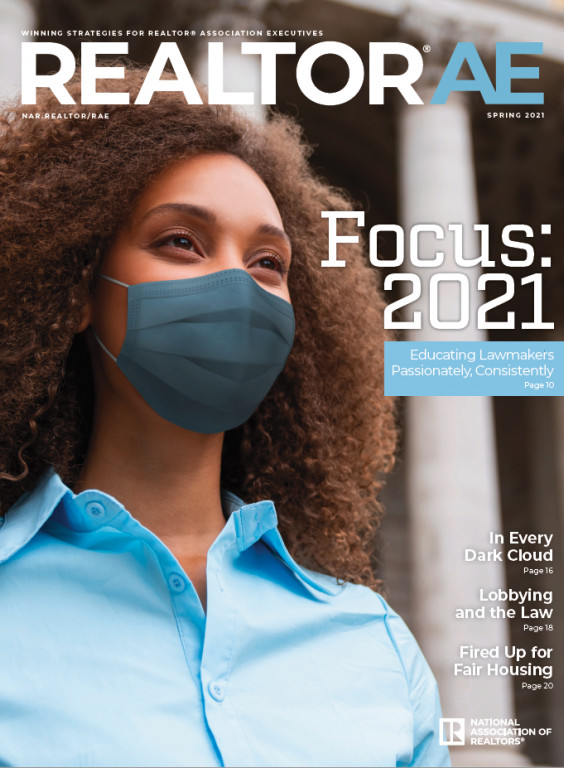The beginning of a new year is a time many REALTOR® associations and members set important legislative and policy priorities. With that done, now is an excellent time to review the applicable lobbying laws to ensure that your efforts to influence such priorities are and remain compliant.
Every state has its own lobbying laws. REALTOR® associations and association staff engaged in lobbying activity must comply with a web of ever-changing registration requirements and reporting obligations. While commonalities exist, no two jurisdictions’ lobbying laws are the same, and in many cases, cities, counties, and even local municipalities have distinct sets of laws that cover lobbying.
Lobbying is most often defined as attempting to influence both legislative and administrative actions.
It would be impossible to cover every jurisdiction’s lobbying laws here, and association staff are encouraged to read more state-specific guidance at the National Conference of State Legislatures website, ncsl.org (search for “How States Define Lobbying and Lobbyist”). What follows is an outline of important lobbying vocabulary and laws that can help guide your efforts to influence the issues while staying in full compliance.
Lobbying
Lobbying is most often defined as attempting to influence both legislative and administrative actions. A few states, such as Oregon, define it as covering legislation only. “Attempts to influence” typically require direct action or contacts with a covered officeholder or government employee, but jurisdictions are increasingly regulating grassroots and indirect lobbying activities, such as asking consumers to contact their legislators on a particular issue.
For instance, Maine recently passed a law requiring non-lobbyists to file grassroots lobbying reports when they make or incur expenditures of $2,000 for grassroots lobbying in a calendar year.
Lobbyists
Most states require two foundational elements to qualify as a lobbyist: (1) The individual must receive a threshold amount of money; and (2) payment must be connected to the individual engaging in lobbying activity. Take Georgia, for example: A lobbyist is defined as a person who receives or anticipates receiving $250 or more per calendar year for promoting or opposing the passage of covered legislation. Some jurisdictions also use lobbying laws to regulate organizations. Organizations that employ, retain, or compensate another person for the purpose of lobbying are sometimes considered “lobbying entities” or “principals.” Arizona, California, and Illinois are among the states that include these designations.
Registration and Reporting
Obligations to register and report are heavily dependent on the relevant legal definitions noted above. Registration fees range from $0 (Arkansas) to several hundred dollars (Massachusetts) and often require annual renewal. Typically, lobbying reports are filed under a proscribed, ongoing schedule, which can vary based on the legislative calendar and range from monthly (Missouri) to quarterly (North Carolina) to annual (North Dakota) filing obligations.
Gifts
Lobbyists and lobbying entities must heed a patchwork of ethics laws restricting the giving of gifts to covered officials. Government officials and employees are typically the targets of these laws, but lobbyists and lobbying entities are advised to also obey such laws in order to avoid troublesome or embarrassing interactions with key covered officials.
A gift can include anything from a meal and refreshments to travel or invitations to events—even events sponsored by your REALTOR® association. Before providing gifts to government officials or staff, be sure to check the gift and ethics laws to ensure the gift is permissible.
Despite the legal complexities, the right to lobby government officials and employees on issues of importance to REALTORS® is protected under the First Amendment. Exercise this right and do so with full knowledge of, and in compliance with, the relevant lobbying laws.













